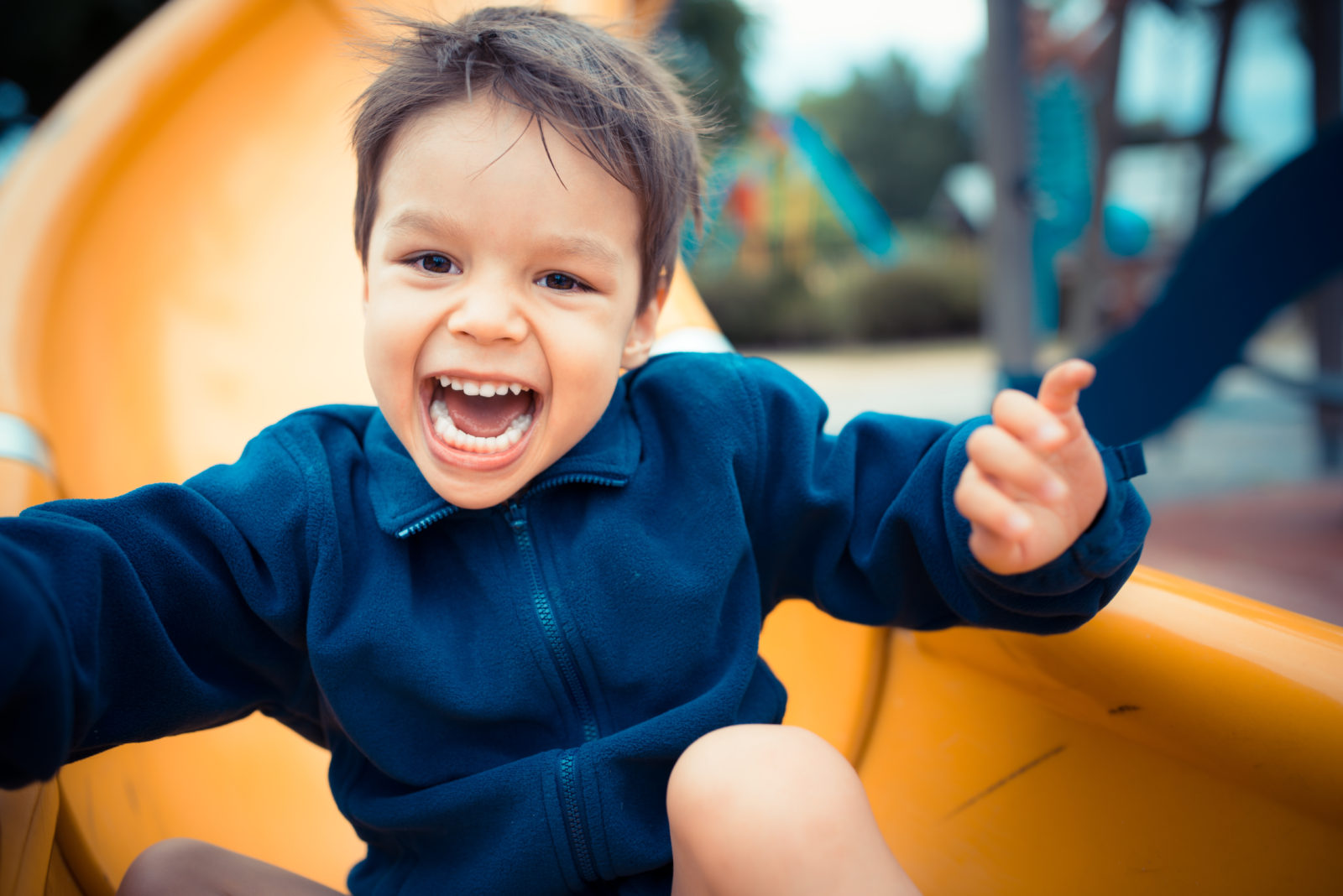watching a flock of birds being released from a cage.”
— Khalid Allaoui, Photojournalist & BLOOM team member
Play is not a luxury — rather, it is a basic human right that has a tremendous impact on a child’s health and wellbeing. Did you know scientists found that play changes the connections of the neurons at the front end of the brain? These changes in the prefrontal cortex impact the brain’s executive control center. That’s where the brain regulates emotions, makes plans, and solves problems. So, play is not just for fun; it has a very powerful impact on the brain and a child’s ability to learn!
BLOOM’s Magical PlayGardens Campaign creates playgrounds and healing gardens in orphanages throughout Morocco. In the PlayGardens, they can be curious, create, collaborate and explore; they are free to run, tumble, climb, squeal, and be noisy and messy. Making ‘free play’ accessible to the institutionalized orphan children of Morocco positively impacts their development and long-term outcomes.
When children spend time engaged in free play in a BLOOM Magical PlayGarden, there are 4 key areas of impact:
1. Cognitive health
“Play is a child’s work.” — Maria Montessori
Children learn through play. While building a Lego structure, playing ball, or tending to plants in the PlayGarden — the children must negotiate about what they will be doing, who will do what, the rules they will follow, and so on. These complex social interactions are building new circuits in the prefrontal cortex of their brains. When a Lego tower falls, they expand their inquiry skills and understand cause and effect. Learning through play builds a foundation of cognitive health.
BLOOM’s Magical PlayGarden impacts the orphans:
· Focus and attention
· Inquiry and reasoning skills
· Understanding cause and effect
· Number sense
· Literacy and communication skills
· School-readiness
2. Physical health
“The body heals with play.” — Ancient Proverb
Play is essential to optimal physical health and development. While climbing a play structure, painting a picture, or passing a ball through a hoop — play develops the children’s fine and gross motor skills and hand-eye coordination. Studies have found that ‘free play’ in childhood is an indicator for improved cardiovascular health, countering obesity, illness and fragility in adulthood.
BLOOM’s Magical PlayGarden impacts the orphans:
· Motor skills development
· Large & Small Muscle Development
· Cardiovascular health
· Coordination, mobility, agility and balance
· Physical confidence and resilience
3. Mental health
“Life must be lived as play.” — Plato
Play is the language of a child, a way to express and cope with feelings. Children use play to soothe emotions, work through trauma and understand the world they live in. For example, a child at Le Nid dealing with the trauma of losing a parent may reenact this loss through dolls while playing. This exercise helps the child understand the experience and release any emotions felt while experiencing the loss.
Researchers have determined children who play develop more optimally in three key emotional growth areas: building self-confidence and esteem; experimenting with various emotions; and releasing emotions from trauma.
Our Magical PlayGarden impacts the orphans:
· Emotional regulation and resiliency
· Confidence
· Relationship building
· Self-reliance skills
· Healing from trauma
4. Building Community & Providing Support
“It takes a village to raise a child.” — African Proverb
The PlayGardens are spaces where orphans of ALL abilities can enjoy play. The spaces create a culture and standard of inclusivity, prioritizing mental health, empowering and honoring the marginalized orphans, and providing support to orphanage staff.
We asked Head Nurse Faiza of the Le Nid orphanage if she had noticed a difference in the children since the PlayGarden opened. Nurse Faiza said “I have not only noticed that the children are much happier and less frustrated, but also my staff is much happier because they are not cooped up inside with the children.” She told us she noticed a clear difference in the frustration level of the children, particularly children with disabilities. Nurse Faiza said, “Now they come inside tired, and don’t fight with the staff when it is time to sleep.”
We also interviewed Kinza, a nurse at Le Nid that enjoys engaging the children in educational activities. Kinza often has the children color or draw at tables in the orphanage. Since the PlayGarden opened she has become more creative when planning activities. Kinza said she feels inspired to teach more creatively due to the PlayGarden space and rich resources.
Our Magical PlayGarden impacts orphans by:
· Promoting a culture of mental health and wellbeing in the orphanages
· Improving orphanage facilities by developing dedicated green spaces, rich with resources and educational tools
· Promoting a culture of inclusivity regardless of gender, ability, etc.
· Exposing the orphans to the larger community
· Supporting the orphanage staff
While these are the 4 key areas in which BLOOM’s programs impact the institutionalized orphan children of Morocco, the impact of joyful moments, friendships, fresh air and basic life experiences is truly immeasurable. Don’t forget to go outside and play today! It will make you smarter, happier, healthier and more connected to the world around you!

